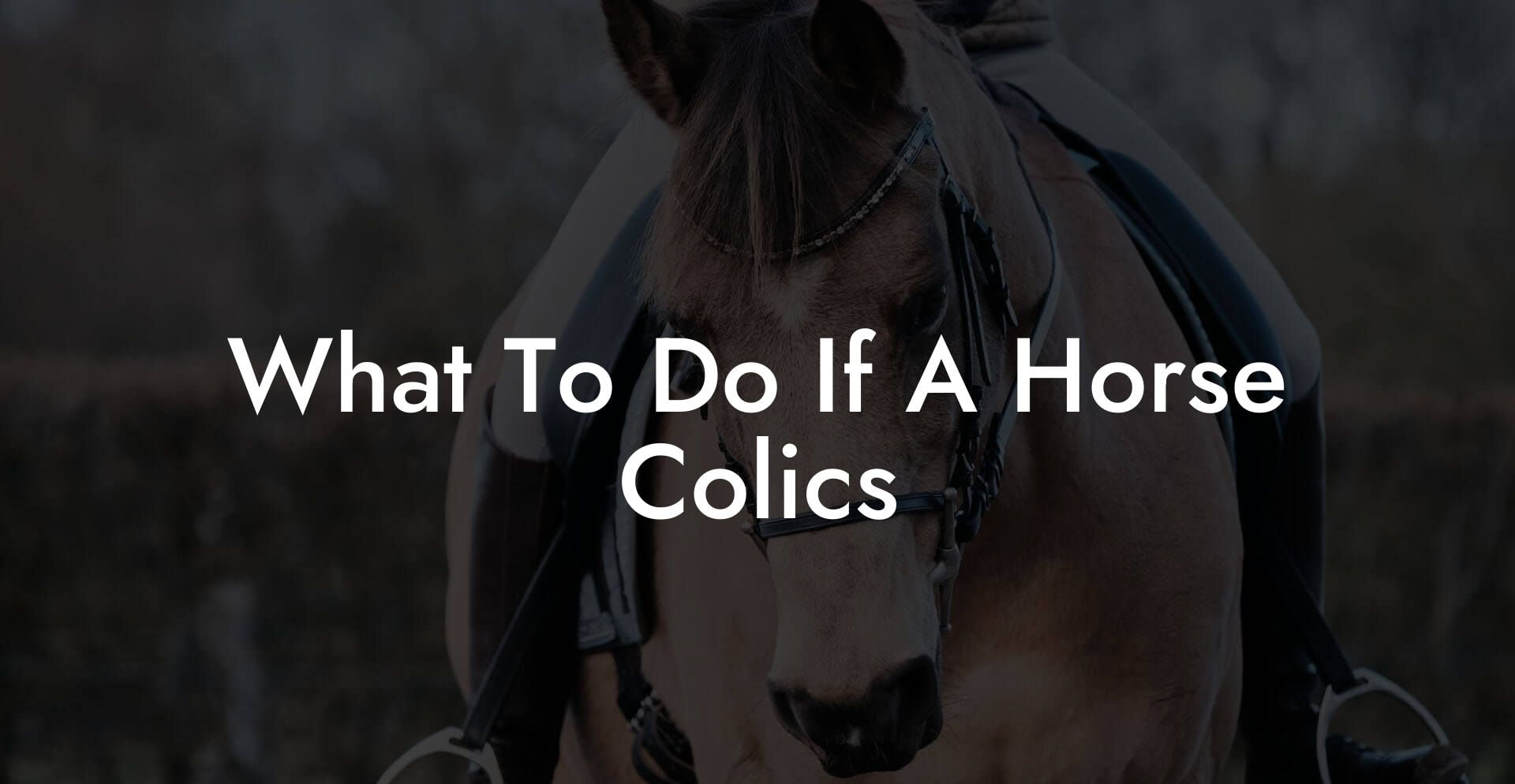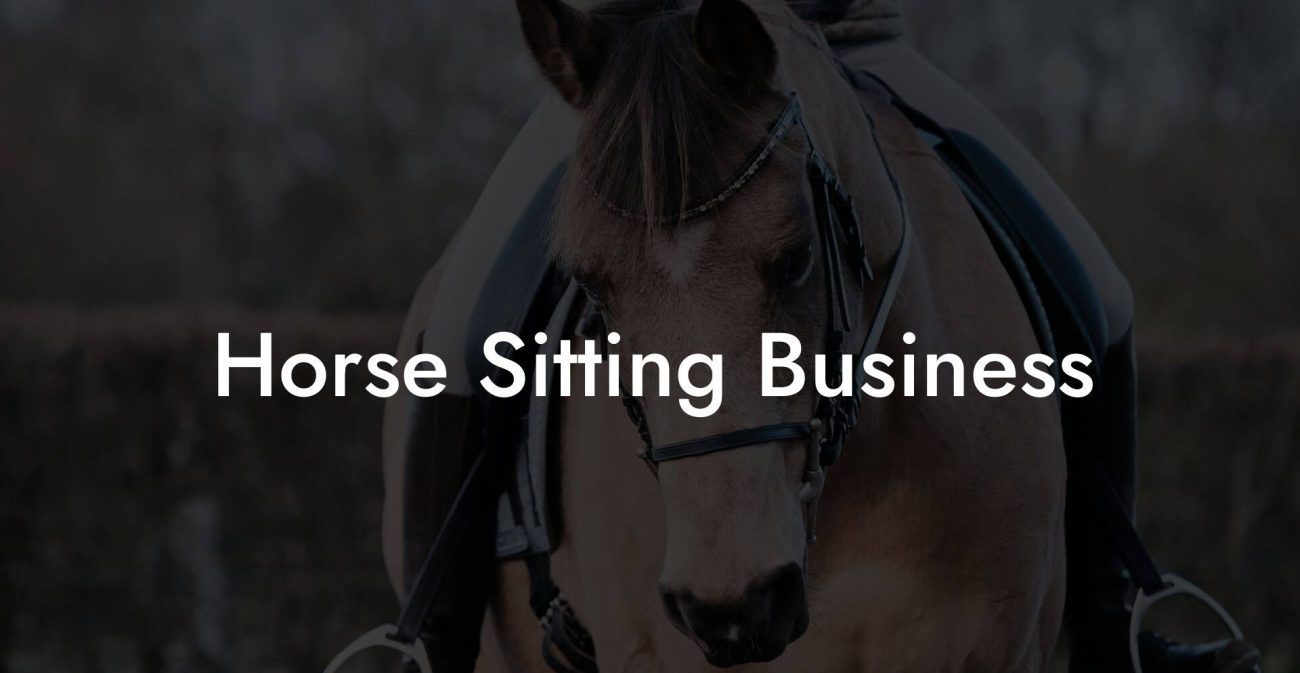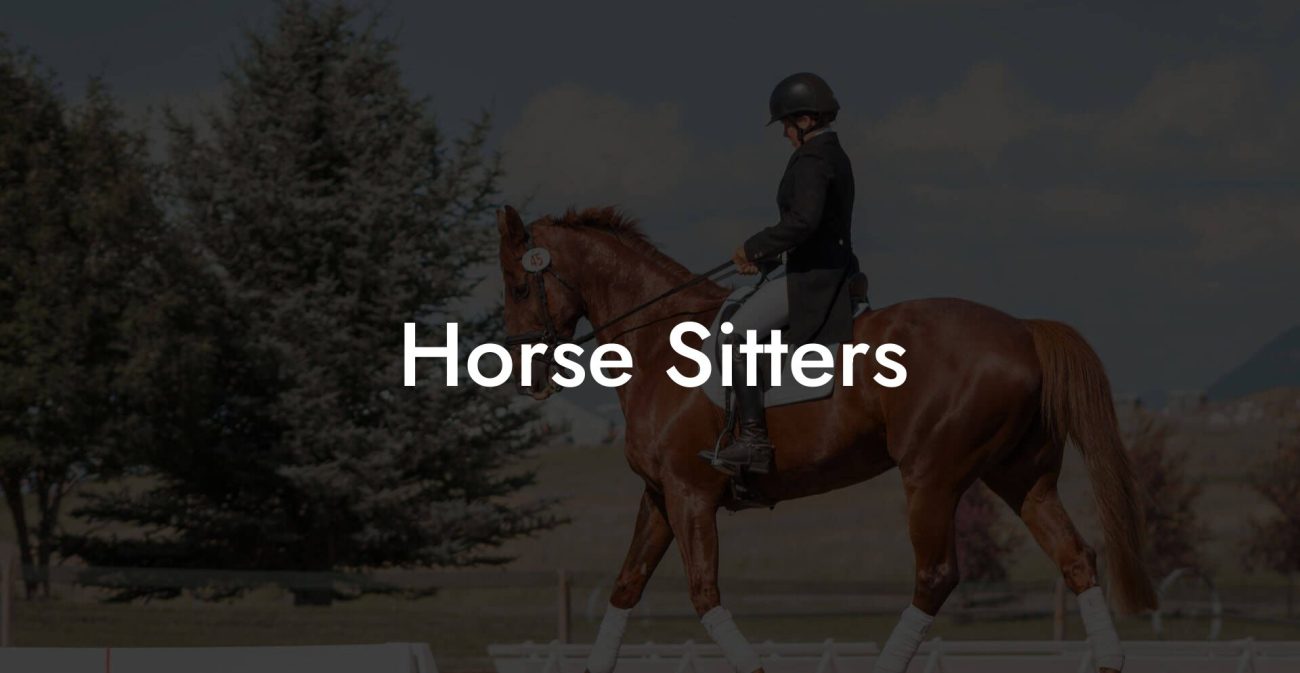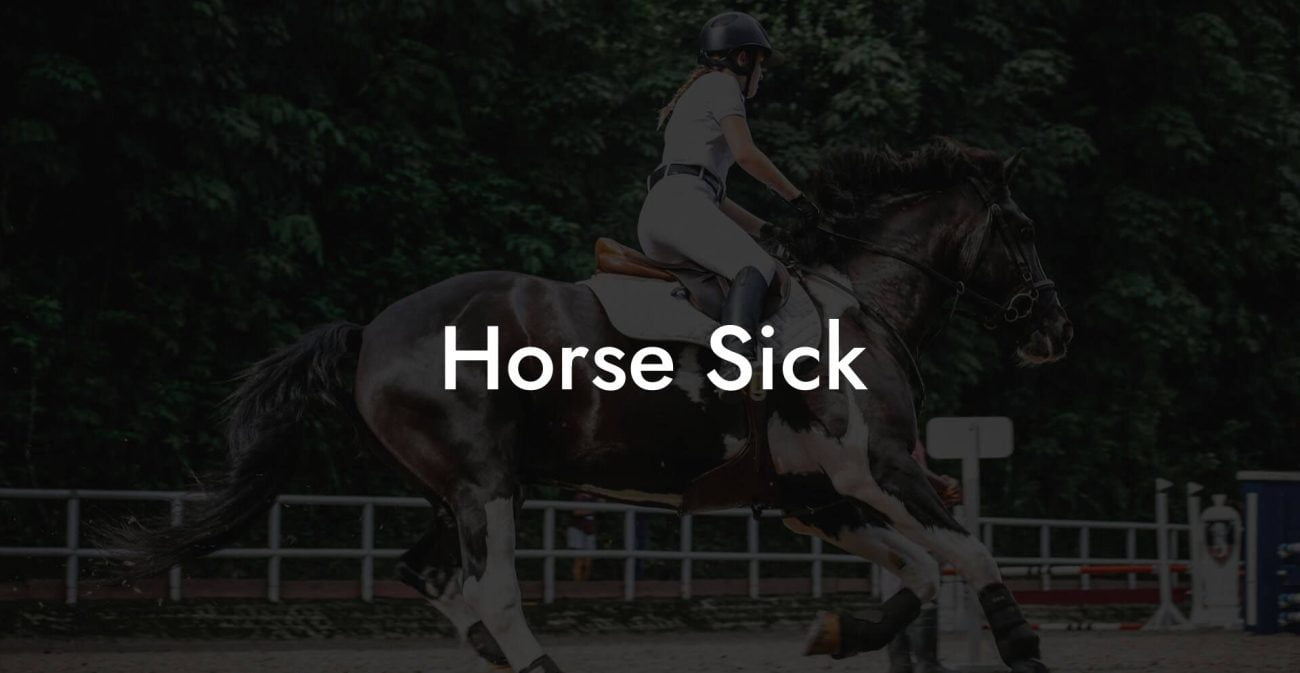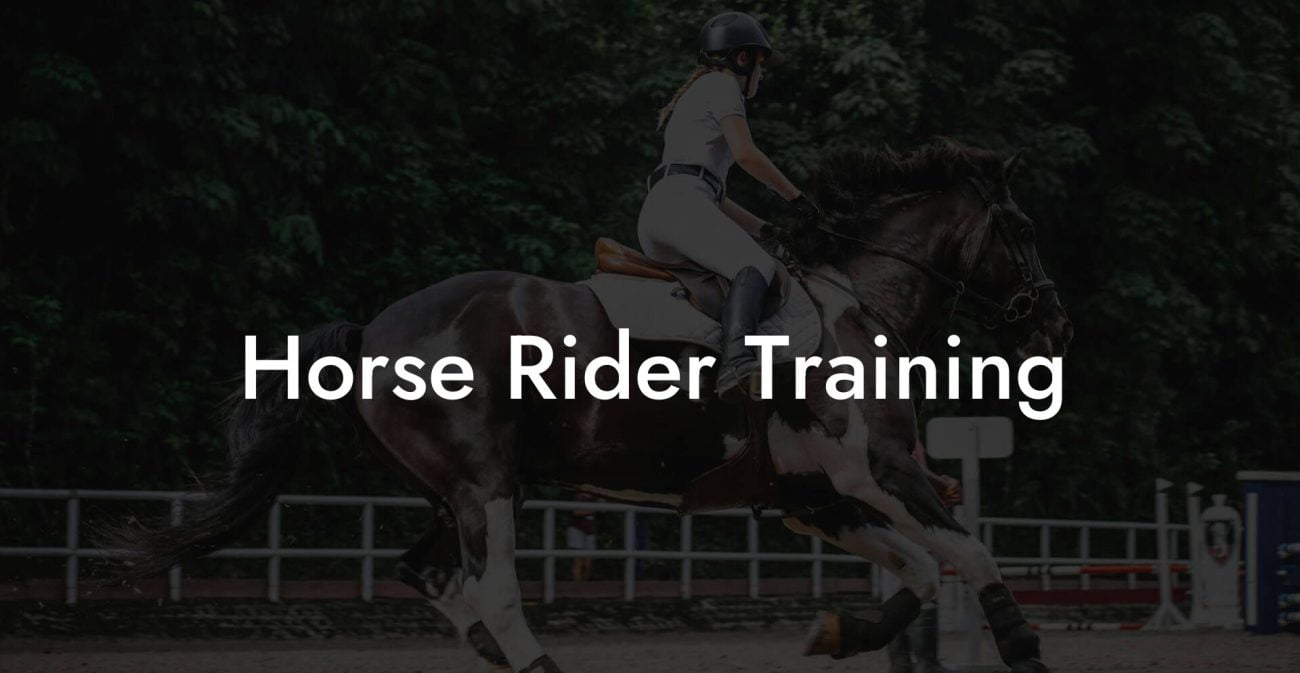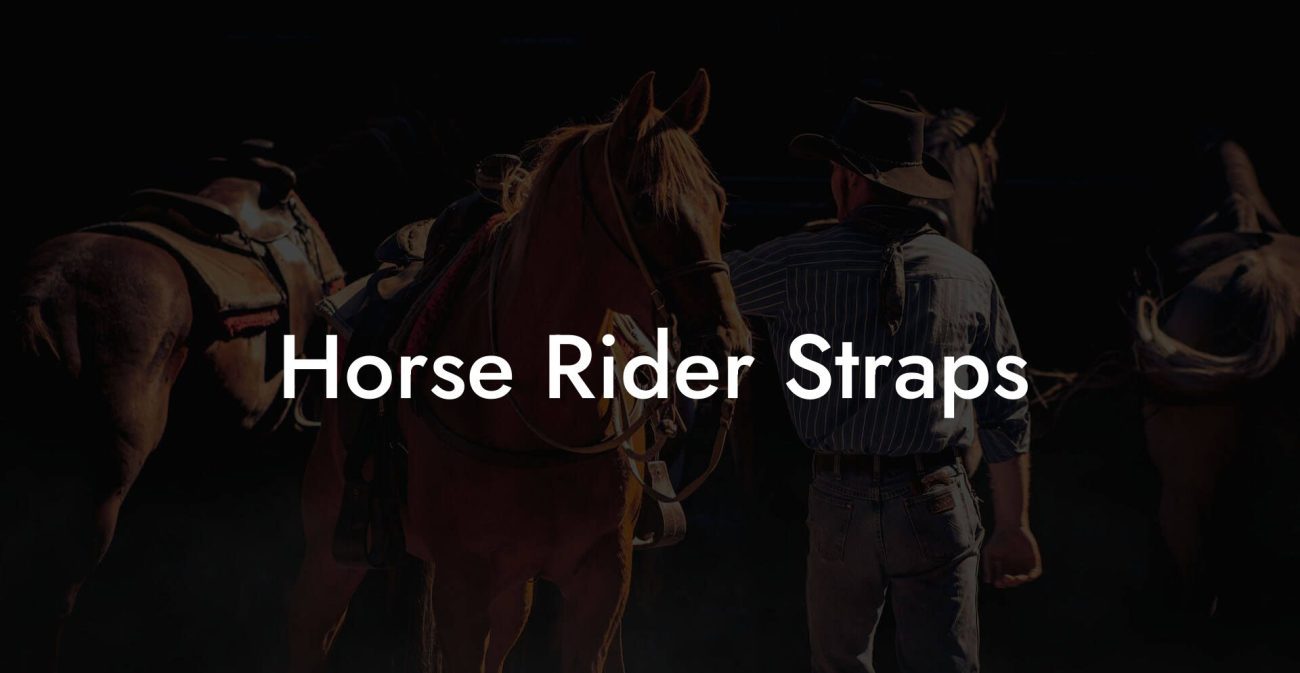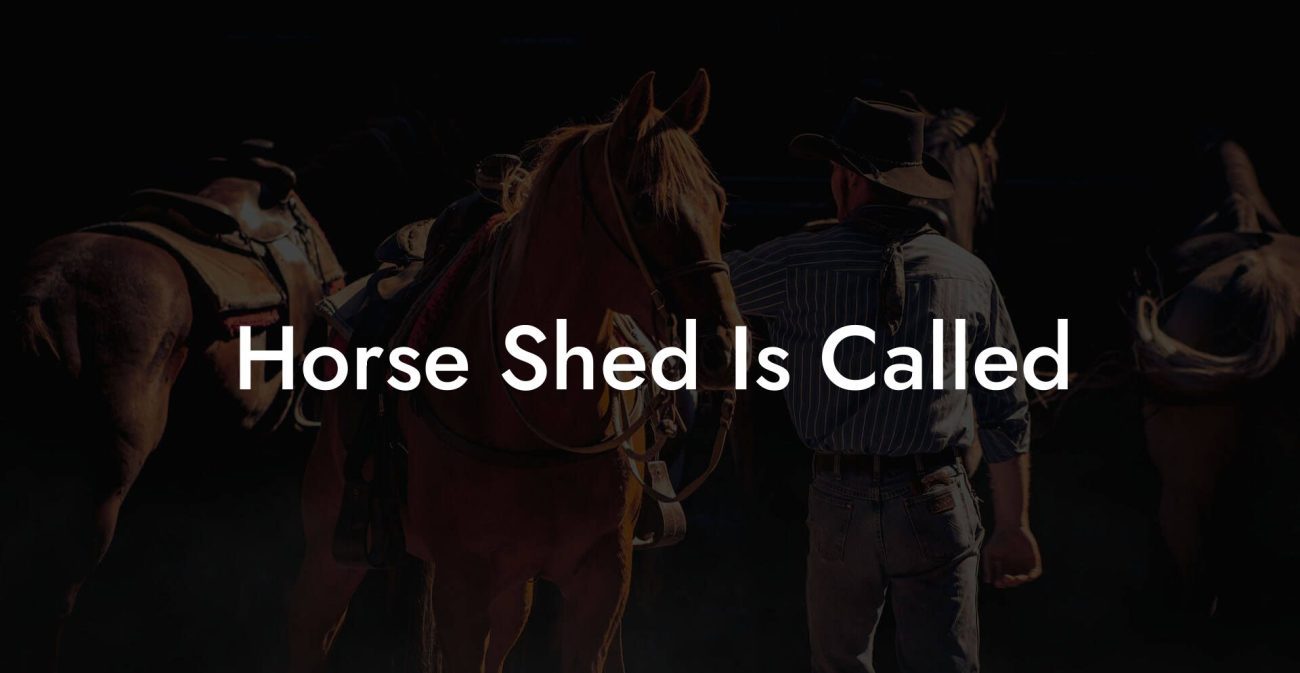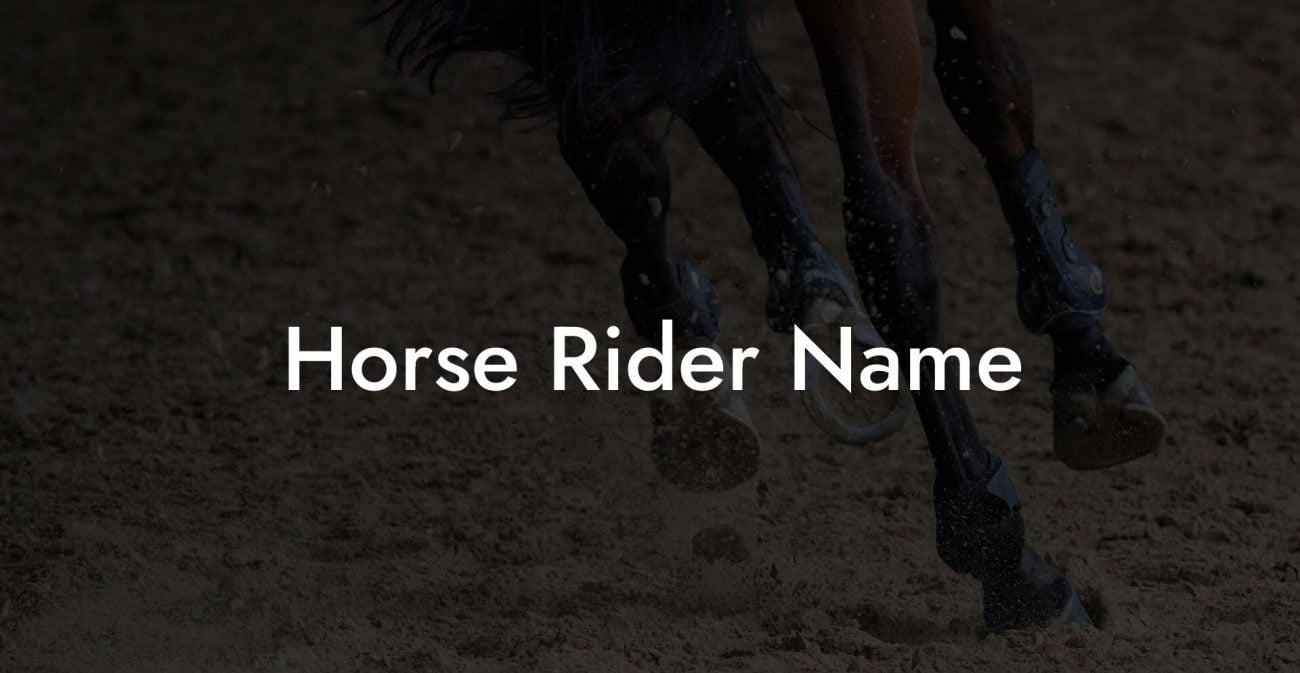Nothing ruins a chill gallop like an unexpected bout of colic. When your mighty steed starts showing signs of discomfort, panic mixes with the urge to whip out your best Instagram-worthy moment of rescue. Horse colic is every owner’s nightmare, but fear not, this guide is your treasure map to understanding, managing, and preventing those dreaded twists and cramps in your equine best friend. From decoding the warning signs to knowing exactly when to dial your vet, we’re here to ensure that even the most dramatic “gassy gallop” moments are met with calm, confident care.
Quick Links to Useful Sections
- Understanding Horse Colic: Causes, Signs, and Surprises
- Immediate Actions: What To Do When You Suspect Your Horse Has Colic
- Step 1: Observe and Document
- Step 2: Ensure Safety First
- Step 3: Check Vital Signs
- Step 4: Adjust the Environment
- When to Call the Vet: Recognizing Emergencies in Equine Colic
- Medical Interventions and Advanced Treatments for Horse Colic
- Diagnostic Procedures
- Medical Treatments
- Aftercare and Monitoring
- Prevention and Proactive Measures: Keeping Colic at Bay
- Consistent Feeding Practices
- Hydration is Key
- Regular Deworming and Dental Care
- Stress Reduction and Gentle Exercise
- Home Remedies and Cautions: What You Can Try (and What To Avoid)
- What You Can Try
- Practices to Avoid
- Integrative Approaches for Holistic Equine Health
- Nutrition and Digestive Health
- Holistic Therapies: Acupuncture and Massage
- Mindfulness and Stress Management
- Resources and Community Support: Your Next Steps
- Educational Webinars and Workshops
- Veterinary Support and Consultation
- Long-Term Strategies for Equine Digestive Well-Being
- Develop a Consistent Feeding Routine
- Maintain Regular Exercise
- Frequent Health Check-Ups
- Stress-Reduction Initiatives
- Equine Colic Myths vs. Facts: Separating Hype from Reality
- Myth: Colic always Requires Surgery
- Myth: Only Older Horses Get Colic
- Myth: More Hay Means Less Colic
- Myth: Stress Doesn’t Affect Horses’ Digestion
- Integrative and Holistic Horse Health: A Modern Approach to Equine Wellness
- Embracing Natural Therapies
- The Role of Mindfulness for Horses
- Equine Colic FAQs: Your Burning Questions Answered
- Your Path to a Colic-Free, Thriving Horse
Understanding Horse Colic: Causes, Signs, and Surprises
Horse colic isn’t a one-size-fits-all code red; it’s a blanket term covering several digestive disturbances that can range from mild discomfort to life-threatening emergencies. But what exactly is colic? In the equine world, colic refers to any abdominal pain or digestive upset in horses. Often associated with gas, spasms, or impactions, colic can be caused by a variety of factors.
Common triggers include sudden changes in diet, dehydration, insufficient fiber, overeating grain-rich foods, and even stress (yes, horses get the stress too!). Poor dental health, parasites, or even a twist in the gut (think of it as a really bad tummy ache) can lead to colic. Understanding these causes is crucial for prevention and early intervention.
Look out for the red flags: restlessness, pawing at the ground, rolling repetitively, and a hunched or tense appearance. Sometimes your horse might exhibit a subtle change in posture or refuse to eat. Knowing your horse’s “normal” behavior is the best way to catch colic early before it escalates into a veterinary emergency.
With a mix of modern insights and old-school horsemanship, you’ll soon see colic not as a mysterious enemy but as a manageable hiccup in your equine companion’s well-being. So, buckle up, this isn’t just about saving your horse’s day but also about keeping your own cool when faced with an unexpected colic crisis.
Immediate Actions: What To Do When You Suspect Your Horse Has Colic
The clock is ticking when your horse shows the first signs of colic, and your initial actions can make a critical difference. The first thing to remember is: don’t panic. Your calm presence is the best medicine for your anxious equine friend. Here’s a step-by-step plan to follow if you suspect colic:
Step 1: Observe and Document
Take a moment to carefully observe your horse’s behavior. Is he rolling excessively? Does he frequently paw at the ground or bite his flank? Document the symptoms, noting how long they’ve been going on and any relevant changes in feed, water, or environment. This information will be invaluable for your veterinarian.
Step 2: Ensure Safety First
Although your immediate reaction might be to rush in and check on him, prioritize safety. If your horse is frantically rolling or kicking, ensure that you and any helpers keep a safe distance. Call for assistance if necessary, and avoid making sudden moves that could startle your horse further.
Step 3: Check Vital Signs
If you’re experienced in equine first aid, take your horse’s vital signs, temperature, pulse, and respiration. A slightly elevated heart rate or labored breathing may signal distress. However, if you’re not comfortable doing this, wait for professional help while ensuring your horse is as comfortable as possible.
Step 4: Adjust the Environment
Create a calm, low-stress environment. Remove any potential hazards from the area, and consider dimming the lights or lowering the noise. Even small steps like offering fresh water or letting your horse lie down on a soft surface can help ease discomfort.
In this high-stakes moment, your intuition, combined with basic equine first-aid knowledge, is your best resource. While every minute counts, remember that a composed approach not only minimizes stress for your horse but also sets the stage for effective treatment.
When to Call the Vet: Recognizing Emergencies in Equine Colic
Not all colic cases are created equal. Some horses may exhibit minor discomfort that resolves with time and basic care, while others may be on the brink of a serious crisis. Knowing when to call your veterinarian is paramount.
Here are some indicators that professional help is needed immediately:
- Persistent Symptoms: If the symptoms persist for more than an hour or escalate in intensity.
- Severe Pain: Signs of extreme discomfort such as continuous rolling, pawing, or writhing.
- Changes in Vital Signs: Elevated heart rate, labored breathing, or a notable increase in temperature.
- Refusal to Eat or Drink: A sudden drop in appetite or complete disinterest in water.
- Abnormal Behaviors: Signs such as sweating, rapid weight loss, or agitation.
When in doubt, call your vet. Modern equine medicine offers a range of diagnostic tools, from ultrasounds to blood tests, that can pinpoint the exact cause of colic. Remember, early intervention can prevent a manageable issue from spiraling into a life-threatening emergency.
The best advice is to err on the side of caution. Trust your instincts, and keep that vet’s number handy. After all, you and your horse are partners, and their health is your primary concern.
Medical Interventions and Advanced Treatments for Horse Colic
Let’s dive into the more technical side of colic care. Once the veterinarian arrives and assesses your horse, several medical interventions might come into play based on the severity and cause of the colic.
Diagnostic Procedures
Modern diagnostics include abdominal ultrasounds, rectal examinations, and even blood tests to evaluate organ function. These procedures help determine whether the colic is due to gas, impaction, or a more severe intestinal twist or blockage. The sooner the detection, the faster targeted treatments can be administered.
Medical Treatments
Treatment often begins on the spot. Intravenous fluids are usually administered to counter dehydration and boost blood circulation. Pain relievers and anti-inflammatory medications work to relieve discomfort and curb inflammation. In some cases, spasmolytics might be used to relax the intestinal muscles.
In severe cases where the bowel is obstructed, surgical intervention may be required. This is where your equine superhero (i.e., the skilled veterinary surgeon) steps in with precision and care. Surgical resolutions aren’t taken lightly, but advances in equine medicine have greatly improved survival rates and recovery outcomes.
Aftercare and Monitoring
Post-treatment care is as essential as the intervention itself. It typically involves a period of rest, a gradual reintroduction of feed, and continuous monitoring for any recurrence of symptoms. Your vet might recommend specific dietary adjustments and modified exercise routines during the recovery phase.
Staying proactive during this period is vital. Keep a close eye on your horse, document any changes, and maintain regular check-ups to ensure a smooth, full recovery.
Prevention and Proactive Measures: Keeping Colic at Bay
When it comes to colic, prevention is infinitely better than cure. While some colic triggers are unpredictable, many cases can be prevented through wise management, proper nutrition, and thoughtful care.
Consistent Feeding Practices
One of the primary causes of colic is abrupt changes in diet. Horses thrive on consistency, gradual adjustments in feed type or quantity help maintain a stable digestive system. Ensure your horse’s diet is high in fiber, predominantly in the form of good-quality hay, and avoid sudden overfeeding of rich concentrates.
Hydration is Key
Dehydration plays a significant role in many colic cases. Fresh, clean water should always be available. In hot weather or periods of high activity, consider adding electrolytes to your horse’s water to maintain hydration levels and support overall gut function.
Regular Deworming and Dental Care
Routine deworming routines and dental check-ups are often overlooked but are crucial in preventing colic. Parasites can disrupt the normal digestive process, and dental issues may lead to improper chewing, a precursor to impaction colic.
Stress Reduction and Gentle Exercise
Stress isn’t just a human phenomenon; horses feel it too. Environmental changes, isolation, or insufficient exercise can all contribute to digestive issues. Incorporate regular, moderate exercise to keep your horse’s metabolism active. Also, create a calm and enriching environment to reduce stress, which in turn helps maintain a healthy gut.
Preventative measures are a blend of solid nutrition, proper management, and a dash of commonsense love for your horse. The better you know your horse’s system, the easier it is to ward off those gastrointestinal gremlins.
Home Remedies and Cautions: What You Can Try (and What To Avoid)
In the age of DIY fixes and life hacks, it’s tempting to try home remedies when your horse shows signs of colic. While some basic measures can help, there are essential precautions to keep in mind.
What You Can Try
Walking the Horse: Gentle walking can sometimes help stimulate digestion and relieve gas build-up. If your horse seems amenable, a slow, steady trot under calm supervision may make a difference.
Warm Compress: In some cases, applying a warm blanket or compress to the horse’s belly can help soothe muscle spasms. Ensure the compress is not too hot to avoid burns.
Herbal Supplements: Certain herbs such as peppermint or ginger have been used traditionally to ease digestive discomfort in horses. However, always consult with your vet before introducing any new supplement into your horse’s diet.
Practices to Avoid
Avoid Oral Fluids: If your horse is displaying severe colic, force-feeding water or other fluids can sometimes worsen the situation. Let a professional assess the situation first.
Haphazard Medications: Over-the-counter pain relievers or human medications aren’t designed for horses and can lead to disastrous side effects. Medications should always be administered under veterinary guidance.
Delaying Veterinary Assistance: Perhaps the most dangerous mistake is waiting too long to call the vet. Home remedies might ease minor discomforts, but persistent or severe colic warrants professional intervention immediately.
Balancing between a caring home remedy and proper medical attention is key. Think of these home techniques as first aid, not a full solution. The goal is to bridge the gap until professional help can take over.
Integrative Approaches for Holistic Equine Health
Beyond immediate treatments and prevention strategies, consider embracing a holistic approach to your horse’s health. The concept of integrative care involves balancing traditional veterinary medicine with wellness practices that nurture the entire animal, from the digestive system to overall mental well-being.
Many modern horse enthusiasts are exploring integrative therapies that include specialized diets, acupuncture, massage therapy, and even equine yoga (yes, it’s a thing!). These practices not only help mitigate colic risks but also enhance the quality of life and performance of your horse.
Nutrition and Digestive Health
A holistic diet goes beyond mere calorie counting. Focus on providing nutrient-dense forage, balanced concentrates, and necessary supplements that aid digestion and reduce inflammation. Consider working with an equine nutritionist to tailor a feeding regime that meets your horse’s individual needs.
Holistic Therapies: Acupuncture and Massage
Acupuncture is making waves in the equine world for its reported benefits in pain relief and digestive stimulation. When performed by a qualified practitioner, acupuncture can help restore balance and promote natural healing. Similarly, regular equine massage can alleviate tension and enhance circulation, both of which contribute to a healthier digestive process.
Mindfulness and Stress Management
Just as mindfulness can have profound effects on human health, reducing stress in horses is equally pivotal. A calm, enriched environment in the stable, with regular social interaction and ample turnout, can mitigate stress-induced colic episodes. Some owners even play soothing music or use aromatherapy to create a tranquil atmosphere.
Integrative care is all about building a holistic wellness plan that respects the complexity of your horse’s body and spirit. By blending modern veterinary medicine with natural therapies and conscientious lifestyle choices, you can help safeguard your horse against colic while boosting overall vitality.
Resources and Community Support: Your Next Steps
Navigating colic care can sometimes feel like venturing into the wild frontier of equine health. Luckily, you’re not alone. There is a wealth of resources available, from expert blogs and veterinary associations to online communities where horse lovers share their personal experiences and heartfelt success stories.
Consider joining local equine clubs, social media groups, or forums like TheHorseForum or Equine World UK. These communities provide a space not only for advice and tips but also for that much-needed reassurance when a colic episode leaves you frazzled. Hearing from other horse enthusiasts can spark creative ideas, from innovative feeding techniques to breakthrough home remedies, that might just make the difference.
Educational Webinars and Workshops
Many veterinary schools and holistic health centers offer free or low-cost webinars, workshops, and even in-person seminars focused on equine digestive health and colic prevention. Participating in these events can provide you with up-to-date information on treatment advances, as well as practical tips that you can implement immediately.
Veterinary Support and Consultation
Develop a good relationship with a trusted veterinarian who specializes in equine care. Many vets today offer telemedicine consultations, making it easier to get professional advice fast, even when you’re miles away from the clinic.
Combining expert advice with community support can transform your approach to colic management from reactive to proactive. The more informed and connected you are, the better equipped you’ll be to keep your horse galloping in good health.
Remember, the journey to preventing and managing horse colic is continual. Embrace lifelong learning, stay connected with your community, and trust in the collective wisdom of seasoned professionals and fellow horse enthusiasts.
Long-Term Strategies for Equine Digestive Well-Being
The road to robust equine health is paved with consistent, intentional care. Here, long-term strategies play a pivotal role in maintaining a digestive system that’s resilient against colic outbreaks.
Develop a Consistent Feeding Routine
A well-structured feeding schedule with gradually adjusted diets is a preventative measure that can minimize the risk of colic. Work with your vet or a nutritionist to craft a plan that gradually introduces changes through transitional periods rather than sudden shifts. Consistency in feed quality, type, and timing can significantly reduce digestive distress.
Maintain Regular Exercise
Just like us, horses benefit from regular movement. Daily turnout and consistent exercise not only keep muscles toned but also promote effective gastrointestinal motility. A balanced exercise routine helps prevent impactions by ensuring that food travels smoothly through the digestive tract.
Frequent Health Check-Ups
Regular veterinary check-ups are a must, especially for aging horses or those with a history of colic. Routine dental care, parasite control, and professional evaluations of your horse’s overall condition all play a role in preemptively identifying and addressing potential digestive issues.
Stress-Reduction Initiatives
Since stress and anxiety are often behind colic episodes, incorporating stress reduction methods should be a priority. Gradually acclimate your horse to new surroundings, avoid abrupt changes, and dedicate time to simple enrichment activities. A calm, predictable environment is one of the best defenses against colic.
Implementing these long-term strategies requires patience and persistence, but the payoff is immeasurable, a healthier, happier horse and a more confident, prepared owner.
Equine Colic Myths vs. Facts: Separating Hype from Reality
With the avalanche of information online, you might have encountered wild myths about colic, ranging from miracle cures to grim prognoses that spark unnecessary panic. Let’s set the record straight by debunking some common myths and replacing them with hard-hitting facts.
Myth: Colic always Requires Surgery
Fact: Surgery is reserved for severe cases where medical intervention alone isn’t enough. Many instances of colic are minor and can be managed with conservative treatments and vigilant monitoring.
Myth: Only Older Horses Get Colic
Fact: While age can be a risk factor, colic can affect horses of all ages. Young, fit horses can fall prey to digestive disturbances, especially if their diet or routine suddenly changes.
Myth: More Hay Means Less Colic
Fact: Although high-quality forage is vital for proper digestion, too much hay or abrupt changes in forage can also cause digestive upsets. Balance is key.
Myth: Stress Doesn’t Affect Horses’ Digestion
Fact: Horses are sensitive creatures. Stress, sudden environmental changes, or a lack of social interaction can negatively impact their digestive system, leading to colic.
Dispelling these myths with facts helps ensure that you make informed, balanced decisions about your horse’s health and well-being.
Integrative and Holistic Horse Health: A Modern Approach to Equine Wellness
In the spirit of embracing both tradition and innovation, integrative and holistic methods can transform how you care for your horse. Beyond addressing colic, these approaches focus on overall health, blending conventional veterinary care with complementary therapies.
Imagine combining precision veterinary diagnostics with the calming influence of equine massage, the balance of an optimized diet, and the community support that comes from networking with fellow horse lovers. Integrative care recognizes that your horse’s wellbeing isn’t just about treating symptoms, it’s about nurturing the complete animal.
Embracing Natural Therapies
Natural therapies such as herbal supplements, acupuncture, and even hydrotherapy are gaining ground in equine care. These methods work in harmony with traditional treatments to alleviate symptoms and promote long-term wellness.
The Role of Mindfulness for Horses
It might sound offbeat, but horses are perceptive beings. A calm, mindful environment can have surprising benefits on their digestive health and overall calmness. Innovative stabling designs and even mindfulness-inspired training regimes are now part of the integrative care conversation.
By adopting a holistic viewpoint, you become more than just a caregiver, you become a guardian of your horse’s entire life experience. Integrative strategies not only mitigate colic risks but also enhance your horse’s quality of life, leading to more joyful, spirited rides and genuine bonding experiences.
Equine Colic FAQs: Your Burning Questions Answered
Below are some frequently asked questions about horse colic, designed to help you navigate this challenging aspect of equine care with confidence and clarity:
1. What is horse colic?
Horse colic is a general term used to describe abdominal pain in horses, usually stemming from digestive disturbances such as gas, impaction, spasms, or intestinal twists.
2. What are the early signs of colic in horses?
Early signs include restlessness, unequal gait, pawing at the ground, rolling, and a visible discomfort or tension in the abdominal area. A sudden change in eating or drinking habits is also a red flag.
3. How can I prevent colic?
Prevention involves maintaining a consistent diet and feeding schedule, ensuring proper hydration, regular exercise, routine dental care, and minimizing stress. Always introduce dietary changes gradually.
4. When should I call my veterinarian?
If your horse’s colic symptoms persist for more than an hour, intensify, or are accompanied by abnormal vital signs (such as a high heart rate or labored breathing), it’s time to call your vet immediately.
5. Can home remedies cure colic?
While gentle walking and warm compresses might alleviate mild discomfort, home remedies should not replace professional veterinary care, especially if symptoms are severe.
6. What diagnostic tests are used for colic?
Veterinarians typically use rectal examinations, ultrasounds, and blood tests to determine the underlying cause of colic, allowing for targeted treatment.
7. How does stress contribute to colic?
Stress can disrupt the normal digestive process by affecting intestinal motility. Ensuring a calm, low-stress environment is an essential part of preventing colic.
8. Are certain horses more prone to colic?
Yes, older horses, those with a history of dental problems or digestive issues, and horses undergoing sudden dietary changes are more susceptible to colic.
9. Can integrative therapies help manage colic?
Absolutely. Integrative approaches that include natural therapies, nutritional adjustments, and stress management have been shown to reduce the frequency and severity of colic episodes.
10. What long-term strategies help in maintaining digestive health?
Consistency in feeding, regular exercise, routine veterinary check-ups, and a well-balanced diet rich in fiber are all critical to maintaining a healthy digestive system.
Your Path to a Colic-Free, Thriving Horse
The journey to protecting your horse from colic is not a sprint, it’s a marathon of vigilance, care, and informed decision-making. Whether you’re a seasoned equine enthusiast or just starting out in the wonderful world of horse ownership, understanding colic and how to address it empowers you to make the best decisions for your four-legged friend.
From recognizing the early signs and taking swift action during a colic episode to incorporating integrative, long-term care strategies into your routine, each step is a building block towards a resilient and healthy horse. Colic may be an unpredictable foe, but armed with the right knowledge, you’re more than capable of tackling it head-on.
Embrace the blend of modern veterinary science, natural therapies, and a community of supportive horse lovers. Stay curious, remain proactive, and continually educate yourself on best practices and breakthroughs in equine health. Your dedication and careful attention are what keep your horse galloping joyously through every season.
Here’s to confident, informed care that turns challenging moments into opportunities for growth and connection. May your bond with your horse only grow stronger as you navigate the ups and downs of equine health together, all while keeping those Instagram stories fun, funky, and full of heart.
Remember, every setback is just a setup for a comeback. With the insights shared in this guide, you’re now equipped to prevent, manage, and thrive even when colic dares to show up uninvited.

